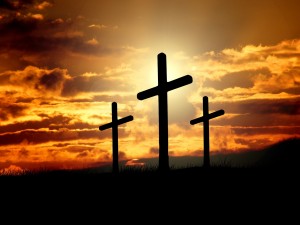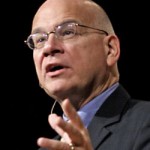Many of us sometimes wonder if we’re in the right place at the right time. In particular, we wonder if we’re investing our time and energy in the right job, career or work. How can we tell? Here are a few basic principles to help guide you toward your calling.

1. We need to first focus on God’s cosmic purpose or calling to the Kingdom.
This operates on a far broader canvas than the debilitating deterministic and individualistic “dot” or “bullseye” approach of “what job is God’s will for me” or “what marriage partner is God’s choice for me?” (as if there is only one job or one possible spouse).
This bigger biblical canvas for callings puts them in second place to our primary calling to follow Christ and “seek first his Kingdom and his justice.” Then our other basic needs will be met as well (Matthew 6:33).
As Robert Banks notes “The criterion for choice and change of calling then becomes: Does it point in the direction of the Kingdom?” [1] Further, our calling to God’s Kingdom community, not pursuing an individualistic career, sets self-fulfilment in the threefold context of service to God, one another and creation. Self-fulfilment is not something to anxiously seek but more a pleasant by-product of this network of right relationships or shalom.
Callings or questions of God’s “will” for work, marriage, etc. are significant but not ultimately significant, in contrast to Christ’s work and God’s will for the world’s salvation (1 Timothy 2:4) and God’s ethical will. Within that will we have great freedom to prayerfully and wisely choose (if we have a choice) optimal opportunities for ministry, knowing that a mistake will not cancel our salvation. This way provides a balanced Christian response between the anxiety-inducing bullseye view inspired by heavenly voices or signs and a secularized rationalism that collapses calling into just a job or career that we rationally calculate.

As Os Guinness has noted, more important than the “what” or “where” of guidance is the “who” of our guiding Shepherd Jesus (John 10:11-15), and who we become in Christ, not what we do.
2. “Freedom in limitation.”
In a time of such surfeit of ‘choice’ for western middle-classes and “the options generation”,[2] we need a longitudinal, historical perspective on these choices in the light of the prominent lines of God’s providence in our lives and through salvation and church history.
The great Swiss theologian Karl Barth writes wisely of “freedom in limitation.” God calls us providentially to serve him through the liberating limitations of our place in history, stage of life, gifts and opportunities. “These are the creaturely carriers and media of the voice of God Himself.” [3]
Despite the crippling consumerist illusion of infinite choice, we are finite creatures, bound to time and place. Like Esther in exile under the Persians, protecting her people from genocide, God may have raised us up “for such a time as this” (Esther 4:14).
3. A hard call.
What of those with little choice and a hard call? Can difficult, grueling work, a human necessity, be a calling? Take for example Graeme Marriott’s story of his callings as a father of three children and foreman at CBM Waste Management.

We are a small … company. We were into recycling but it’s not that profitable. Our attention turns to waste disposal. My job is to run the place: I organise and do some paper work. We do garbage and recycling…. There’s three guys, and we start at 3 am…. I drive the compactor for half the run, and I run at the back of the truck for the other half. I’ve been doing this for six years. I process the recycling every day. … It’s heavy manual work. There is lifting, lots of noise especially when you’re processing. Running … steep streets is physically demanding particularly in the summer …. You’ve got to get going early, and that is disruptive to family life. You work all days, all weather, even public holidays. As an essential service you can’t have time off. I like the challenge of the physical aspect: how fast and efficient can we get?
But it’s pretty mindless–smashing bottles, running behind a truck…. People ask me about my work and some see me as a bum. In some way it is an end of the road job. But it is essential and people rely on you. If we went on strike, and waste started to build up, it would be a health risk. … Recycling is more important these days, and I’m respected a bit. My daughter’s school asked me to speak to the children about recycling. These recycling issues affect us all so my role is important. I know that even if it’s sometimes hard to say, God has called me to do my job.[4]
Graeme has a grueling job, but he makes the most of it, sharing the difficult aspects around, and he takes his responsibility seriously as something from the hand of God.

4. The need is not necessarily the call.
Many years ago, as an adolescent, I visited my cousin the night she died in hospital from a brain tumour. She was delirious, and I was overwhelmed with compassion and wanted to be a doctor. But I was not gifted at maths and science and eventually channelled my compassion towards pastoral ministry where I was more suited and less likely to kill somebody, unless they mistook the “Dr.” in front of my name for a medical doctor.
There are many needs and our finitude means we can only be in one place at one time. So we need to pay primary attention to the needs of our “nearest” neighbours – not necessarily geographical – but those we have the gifts, resources and responsibility to meet. In this light Frederick Buechner writes: “The place God calls you to is where your deep gladness and the world’s deep hunger meet.”[5] God wants us each to be “a cheerful giver,” (2 Corinthians 9:7) aware that the gifts we can gladly give, are not our private possession, but God-given, to be passed on to others.
John Schuster suggests that we add depth to our roles when we view them relationally:[6]

Calls draw us into the depth level of whatever roles we may already have…[They] turn the insurance policy pedlars into advisors of needed financial security, grocery store employees into health and nutrition suppliers, doctors into healers, secretaries into stewards, businesspeople into entrepreneurs, bureaucrats into civil servants, writers into dreamweavers, parents into co-creators of life.
While this may sound a bit grandiose, Schuster’s point is that awareness of God’s activity in and through our ordinary roles deepens our opportunities for extraordinary love and service.
5. Community discernment.
One of the major problems of the western approach to guidance is its individualism and unaccountability. We make up our own minds and say “Here I stand, I can do no other’ like Luther, but without his qualification that “my conscience is captive to the word of God.” Those of a more Spirit-oriented bent can hear the voices they want to hear. Luther said to those in his day “I don’t care if you swallow the Holy Spirit feathers and all” you must convince me by Scripture, tradition and sound reason. Each of these for Luther, through the rational interpretation of Scripture in the church present and past, is a communal process.

The Spirit speaks but more often to “us” than just “me.”
In Acts we hear of the Holy Spirit’s guidance when Paul and Barnabas were sent on mission by the church at Antioch (Acts 13:2-3). When the Gentiles were accepted into the then largely Jewish church without onerous Jewish laws, the scriptures says “it seemed good to the Holy Spirit and to us” (Acts 15:28). Such corporate discernment, wrestling with one another and in mutual accountability, is a good model for our vocational discernment, though there is obviously individual liberty and responsibility also.
Archbishop William Temple was right that to choose a career on selfish or individualistic grounds, without a true sense of calling, confirmed corporately, is “probably the greatest single sin any young person can commit, for it is the deliberate withdrawal from allegiance to God of the greatest part of time and strength.”[7] But the fault is as much, if not more, that of the Church which has left people to their own devices, without resources of corporate discernment and vocational guidance, unless they are considering ordained ministry.

6. Called to be more – and less.
Gail Godwin’s novel Evensong has a character affirm the vocation of a female Episcopal priest by saying “something’s your vocation if it keeps making more of you.” It’s more than just a job but part of a “faithful, flourishing life.”
While the language of passion is all-pervasive today, vocation includes, but is more than passion in the emotional sense. It is the commitment and disciplined practice of a focus for life rather than a nibbling approach to food or a channel-surfing approach to media. It is this that “keeps making more of you.” In this way vocations or callings are connected to long-term, holistic covenants in relation to our role responsibilities – to our nearest neighbours – husbands and wives, parents and children, bosses and workers, rulers and citizens.
Gregory Jones balances Godwin:
“Conversely, we ought to avoid those vocations that are likely to make “less” of us, especially if in them we are likely to be ‘shrivelled’ by one or another form of sin. We can be made ‘less’ by our own temptations, by a particular mismatch between what we are doing and the gifts we have been given by God, by contingent events that overwhelm the possibilities of continuing a specific vocation, or by the corrupting practices or institutions that currently shape our vocation.”
Godwin’s phrase helps orient us toward vocations that encourage a flourishing of life.
But Godwin’s phrase ‘more of you’ can be co-opted by a seductive culture of self-fulfillment… It needs to be placed next to Dietrich Bonhoeffer’s claim in The Cost of Discipleship that when Christ calls [someone], he bids him come and die.”[8]
 Excerpt from article Vocation in Historical-Theological Perspective, by Gordon Preece. Gordon Preece is the Director of Ethos: EA Centre for Christianity and Society. Gordon is an international leader in the field of workplace theology and ethics. He is on the executive committee of the Theology of Work Project and also a theological consultant to the Marketplace Ministry Stream of the Lausanne Congress on World Evangelization. He has a passion for exegeting Scripture and culture and equipping Christians for their life in the world. He is author/editor of 12 books and of Zadok Perspectives.
Excerpt from article Vocation in Historical-Theological Perspective, by Gordon Preece. Gordon Preece is the Director of Ethos: EA Centre for Christianity and Society. Gordon is an international leader in the field of workplace theology and ethics. He is on the executive committee of the Theology of Work Project and also a theological consultant to the Marketplace Ministry Stream of the Lausanne Congress on World Evangelization. He has a passion for exegeting Scripture and culture and equipping Christians for their life in the world. He is author/editor of 12 books and of Zadok Perspectives.
Click to Like Theology of Work Project on Facebook

[1] Faith Goes to Work,167. Cf. Banks’ emphasis on calling to the Kingdom with Tom and Christine Sine, Living on Purpose: Finding God’s Best for Your Life (Grand Rapids: Baker, 2002).
[2] Hugh Mackay. Generations: Baby Boomers, their Parents & their Children (Pan MacMillan Australia, 1997) referring to the then 15-30 year olds.
[3] Karl Barth, Church Dogmatics III/4 (Edinburgh: T&T Clark, ET 1961), 634-36.
[4] Head, Hands and Heart 1, Lookout
[5] Wishful Thinking: A Seeker’s ABC (Harper SanFrancisco: rev. ed., 1993) under “Calling.”
[6] Answering Your Call: A Guide for Living Your Deepest Purpose (Berrett-Koehler Publishers Inc., San Francisco,2003), no p.
[7] Cited unsourced in Os Guinness, The Call (Nashville: Word, 1998) 47.
[8] E. Gregory Jones, Everyday Matters (Nashville: Abingdon, 2003), 42 citing Evensong (New York: Ballantine Books, 2000).












